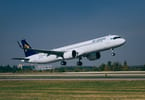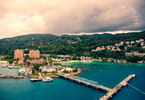Tourism to Germany is getting less and less of a fun exercise. Ongoing and repeating strikes by the national railroad, and the national airline Lufthansa, makes the country a laughing point and a challenge when it comes to transportation.
Now another large-scale train drivers’ strike, to continue until Monday morning, is affecting passenger rail services in Germany. Deutsche Bahn is canceling two out of three train services.
The trade union for German train drivers, GDL, broadened its strike from freight to passenger services as of 2 a.m. local time (0100 UTC) on Thursday. Normal service was scheduled to resume at 4 a.m. on Monday morning.
From the start of services in the early morning, long-distance, regional, and short-distance train traffic will be affected. Deutsche Bahn said it would try to indicate which trains were certain to run with at least 24 hours notice during the strike, saying it still had the resources to service its busiest routes.
The GDL trade union has staged multiple strikes this year, part of a protracted dispute over pay, working hours, and the union’s desire to negotiate for all Bahn personnel, not just train drivers.
The union on Wednesday rejected a call from DB to return to open new arbitration talks. DB’s demand in return was the cancellation of the strike.
Unusually from a German government that normally makes a point of distancing itself from union disputes, this prompted a cross-party government appeal to the GDL, urging them to return to the table. Chancellor Angela Merkel, Economy Minister Sigmar Gabriel and Transport Minister Alexander Dobrindt – who also represent each of the three parties in Merkel’s coalition government – called for the GDL to reconsider.
Effects of past strikes this year have spilled over onto the road network
German Chancellor Angela Merkel said that strikes could be a legitimate negotiating tool in labor disputes, but added that they should remain proportional. The chancellor said only a court could decide whether that was the case in this instance, but alluded to a “collective responsibility.” Dobrindt, Merkel’s transport minister from Bavaria, said DB should sue the union, saying this would be “in the interest of the Bahn’s customers, employees, and the maintenance of goods transportation in Germany.”
In a guest article for the mass-circulation daily Bild, Gabriel argued that the GDL had misused its right to strike – a rare criticism from the Social Democrats, known for close union ties.
The GDL is calling for a 5-percent pay increase and decreased working hours, not just for its 20,000 train driver members, but for the roughly 17,000 stewards and conductors as well. DB has said that this is impossible because it could impact on other accords reached with rival unions. The larger union charged with representing other rail and public transport employees, the EVG, has criticized the approach taken by the GDL’s boss Claus Weselsky.
WHAT TO TAKE AWAY FROM THIS ARTICLE:
- Unusually from a German government that normally makes a point of distancing itself from union disputes, this prompted a cross-party government appeal to the GDL, urging them to return to the table.
- Ongoing and repeating strikes by the national railroad, and the national airline Lufthansa, makes the country a laughing point and a challenge when it comes to transportation.
- The GDL trade union has staged multiple strikes this year, part of a protracted dispute over pay, working hours, and the union’s desire to negotiate for all Bahn personnel, not just train drivers.





















